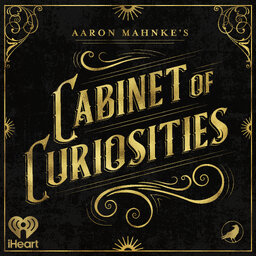The Divine Tragedy
Sometimes it's hard to believe the things we see with our own eyes, while other times we have to trust our ears to reveal the truth. Both of these tricky moments are on display in the Cabinet today.
Learn more about your ad-choices at https://www.iheartpodcastnetwork.com
 Aaron Mahnke's Cabinet of Curiosities
Aaron Mahnke's Cabinet of Curiosities


